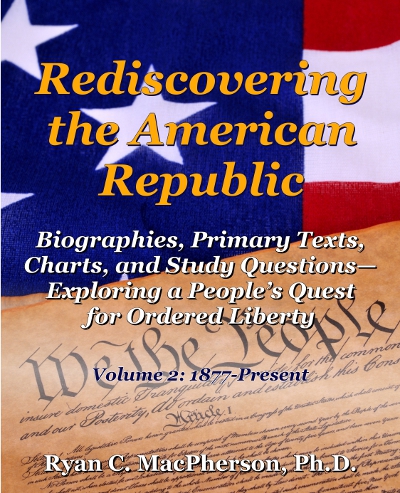The tagline on the back of this book summarizes it well: “Think God doesn’t want you to be happy? Think again!” When unpacked correctly, this isn’t some heterodox nonsense written by an author hoping to rise to the top of the best-seller lists; this is sound Biblical wisdom by respected Christian author Randy Alcorn.
The following are summaries of some questions and answers offered in the book.
Does God want us to be happy?
God himself is happy and we are made in His image! God sent his son Jesus to rescue us from our sins and give us the promise of eternal happiness with Him in Heaven. But even here on earth, He gives us tastes of joy every day. The trick is to search for the only true happiness: happiness found in God by following His commands.
“We’re free to be unhappy. We’re free to search for happiness where it can’t be found. What we’re not free to do is reinvent God, the universe, or ourselves so that what isn’t from God will bring us happiness. ... There has never been nor will there ever be any happiness in the universe which isn’t from God” (91-92).
Isn’t it selfish to want to be happy? Shouldn’t we be holy instead?
It is wrong to be happy if we find happiness in sinful things. But, in the end, those things won’t make us truly happy anyway; they only entice with a promise of happiness that winds up empty. God wants us to first find happiness in Him, and then find happiness in all of the blessings He’s given us.
“The desire for happiness isn’t, as many misrepresent it, the child of modern self-obsession. The thirst for happiness is deeply embedded both in God’s Word and in every human culture. ... The fall didn’t generate the human longing for happiness—it derailed and misdirected it. ... Why else would we long for happiness and sense what a Utopian society should look like even if we’ve never seen one? We are nostalgic for an Eden we’ve only seen hints of” (7).
“We need to say no to things that cause harm, like drugs or stealing, but the solution is never to say no to happiness. What we should say no to are false notions of happiness—but this is not saying no to happiness; in fact, it requires saying yes to true happiness” (84).
“The husband who says no to temptation and cares for his wife with Alzheimer’s instead of having an affair isn’t sacrificing happiness for faithfulness. Instead, he’s choosing the path of greater happiness through faithfulness. Yes, he’s doing the right thing, and yes, he should fulfill obligations even at a great cost—but in fact, he’ll be happier for doing so” (350).
Is there a difference between joy and happiness?
Many modern Bible teachers make a distinction between the outward feeling of happiness and the inward feeling of joy. However, this author has done an extensive Biblical word study and believes that the distinction is unwarranted.
“No modern Bible translation would render ASHER or MAKARIOS ‘blessed’ if not for the long history of doing so” (192).
“John Piper writes, ‘If you have nice little categories for joy is what Christians have and happiness is what the world has, you can scrap those when you go to the Bible, because the Bible is indiscriminate in its uses of the language of happiness and joy and contentment and satisfaction’” (36).
“Happy are those who obey God’s Word” (205, quoting from Luke 11:27-28, James 1:25, Revelation 1:3).
I’m a Christian, but I don’t FEEL happy? What’s going on?
Depression is a medical reality. However, even those crippled with depression can make conscious choices to give thanks in all circumstances, and follow God’s commands for our earthly lives. These choices often result in happy outcomes, even while we struggle.
“Our happiness is, indeed, a Christian duty ... [but] when God commands us to rejoice, his Holy Spirit empowers us to obey. ... If our lives are not characterized by rejoicing, or if we’ve given up on happiness, we’re missing out on what God intends for us. We must go to him and ask for his help and empowerment to find joy in him” (18).
“Nothing in this book suggests that God’s people won’t suffer or grieve. But throughout the ages, God has infused his followers with supernatural happiness even in sorrow and adversity” (49).
“Choosing to rejoice by rehearsing reasons to be happy and grateful even in the midst of suffering is an affirmation of trust not only in what God has done but also in our belief that he will bring a good end to all that troubles us” (52).
“The key in [times where we don’t feel enjoyment in reading Scripture] isn’t to give up on God’s Word and prayer but to stay with it and ask him to give us joy. ... When we memorize, meditate upon, and quote to ourselves biblical passages about joy, happiness, and gladness, we break out of the ruts of hopelessness, despair, and pride. We dig new channels for the rivers of our thoughts” (310-311).
“Sorrow is real, but just as resurrection outdoes death, joy in Christ always trumps sorrow in the end. ... If God brought the greatest good out of his Son’s suffering, can’t he also bring good out of ours” (318, 321)?
“God’s grace, his promise to never forsake us, his sustaining presence, and his promise of a plan for our good are always part of the cure; sometimes therapy and medication can also play significant roles. ... I feel empathy for those who suffer from [depression]. But I do think that some—though certainly not all—long-term unhappiness is the product of unbelief and wrong beliefs. Just as I edit my writing to make it better, I must edit my beliefs and thought habits in light of God’s Word” (356).
“I’m not always happy, any more than I’m always holy. But by God’s grace, I’m more supernaturally happy in Christ now than I’ve ever been. And I’ve also learned to make choices that increase my joy. Great pain certainly dulls—and at times even overshadows—happiness, but it can’t destroy happiness that’s ground in our ever-faithful God” (414).
How does happiness (or a lack thereof) effect evangelism?
Unbelievers grasp for happiness here on earth, but it is elusive because they are looking in the wrong places! Christians have reasons to be eternally happy. That happiness is contagious. If each and every Christian, even amidst trials and suffering, showed the joy he possessed outwardly, the Gospel would be instantly attractive to a hurting world.
“By God’s grace, we can use the desire for happiness to lead people to the holiness that’s woven into the gospel with happiness. ... Holiness doesn’t mean abstaining from pleasure; holiness means recognizing Jesus as the source of life’s greatest pleasure” (337, 339).
“If someone declares a desire to be happy, we should never say, ‘You just need to obey God and forget about being happy.’ Rather, we should say, ‘God wired you that way.’ Then we can ask, ‘Have the things you’ve though would make you happy worked for you?’ The answer is probably no. That’s the time to suggest, ‘Maybe you haven’t looked in the right place.’ We can then present the Bible’s bad news, which explains the sin problem that makes them unhappy. Then we can share the good news of the gift of God that can reconcile them to their holy Creator and therefore make them eternally happy” (412).
I highly recommend this book! It was deep and required lots of Bible checking, so I ended up digesting it over several months. There are places that an under-educated/non-polyglot reader may end up skimming. But most of it is very accessible to the average layperson. I’d encourage you to read it for yourself and unpack God’s plan for your own eternal happiness! “They all lived happily ever after is more than a fairy-tale ending. It’s the deep-seated dream of the human race” (418). And a dream that God in Christ really can deliver.
Mrs. Marie K. MacPherson, vice president of Into Your Hands LLC, lives in Casper, Wyoming, with her husband Ryan and their children, whom she homeschools. She is a certified Classical Lutheran Educator (Consortium for Classical Lutheran Educators), author of Meditations on the Vocation of Motherhood (Old Testament vol., 2018; New Testament vol., 2023), and editor of Mothering Many: Sanity-Saving Strategies from Moms of Four or More (2016).


